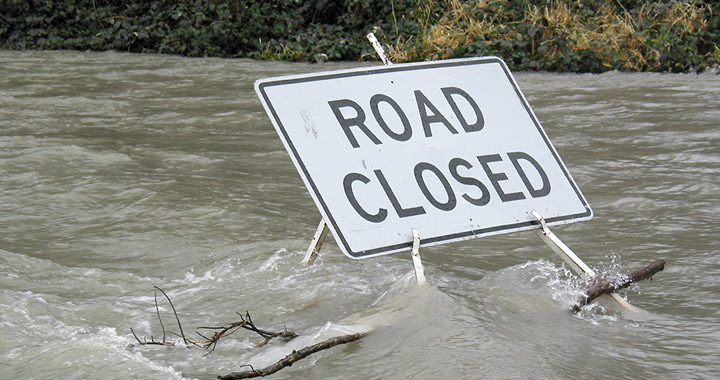
A one-day course – book your place soon to avoid disappointment!
Date: 3rd December 2015
Flood Risk Assessments are a vital step in the development process, and with the increasing awareness of the importance of planning for flood risk at the earliest stages, coupled with numerous examples of the devastation arising from inappropriate planning, is an area which will see increased activity in coming years. Interpreting the OPW / DoECLG guidance the Planning System and Flood Risk Management is something that those who are required to undertake or understand FRAs may not be up to speed with. This may come down to requiring a greater understanding of certain points in the planning and flood risk guidelines, understanding key aspects of flood risk maps, key complexities and challenges, and how this information is used in assessing developments or proposals.
This MasterClass will give you a greater understanding of the FRA process and guidance on what is required to carry out an initial flood risk assessment and when a more detailed assessment is required. The MasterClass will also include a review of recently released updates to the Planning System and Flood Risk Management and a discussion of the implications of these updates for planning authorities and developers.
When you leave this course, you will be aware of the key policies and legislation relating to FRAs in Ireland. You will receive expert and experienced guidance on issues such as mapping, understanding the hierarchy of FRAs, and when each stage is required. You will be aware of elements to be included in an initial FRA, considerations in appraising FRAs, have an understanding of when a detailed FRA is required and the challenges that may arise with this. You will gain an opportunity to engage in informative Q&A’s, speak with other professionals working in your field, and leave with an informative course pack and 5 CPD points.
- The Planning Guidelines and Flood Risk Management
– Background to the Planning Guidelines – political framework and links to other plans
– Core Principles of the Planning Guidelines – Flood Zones, Vulnerability of Developments, sequential approach and Justification Tests
- Understanding and assessment of flood risk:
– Terms and concepts
– Hierarchy of flood risk assessments
– Regional / strategic and detailed assessments of development – including obligations on the local authority and those seeking to develop
– Stages of flood risk assessment and when these are required
- The Flood Maps and Flood Risk Assessment
– Data availability and problems encountered
– Final make-up of the maps for SFRA
– Advantages and limitations of the maps
– Incorporation and acceptance into the CDP/DP/LAPs
– Refinements to the SFRA maps which are required for site specific assessment
- Initial Flood Risk Assessment
– Key elements to be included in the Initial FRA
– Sources of data
– Considerations of the local authority planner/engineer in appraising the FRA
– When a detailed FRA is triggered
- Detailed FRA
– Scope of a detailed FRA
– Complexities and challenges
- Q & A
This course has been designed and developed for both the public and private sector, and would be very relevant to planners, engineers and environmental employees in local authorities, as well as planning consultants, engineers, developers and anyone who is involved in planning and environmental management.
On completion you will receive your Certificate of Attendance as well as your CPD Certificate containing 5 Structured CPD Points. Please note certificates are issued only at the close of the training course to participants who complete the full five hours.
 Elizabeth Russell
Elizabeth Russell
BSc MSc CEnv MCIWEM C.WEM – JBA Consulting
Elizabeth has been a key member of the JBA team involved in integrating the Planning Guidelines within the wide framework of the Local Authority planning system. She developed the SFRA for Laois, and through an iterative process, worked with the Forward Planning Team to allocate land zoning objectives in the County Development Plan. Elizabeth provided guidance and training to Cork County Council as they undertook SFRA for their LAPs. She has project managed a number of other SFRAs, including Clonmel Development Plan and the Mountmellick and Portlaoise Local Area Plans, and is currently undertaking and SFRA for the Ennis and Environs Development Plan (2013-2020). She has also acted as Technical Advisor and Reviewer on numerous other studies commissioned through the Limerick Office.
On behalf of the DoEHLG and OPW, Elizabeth developed and facilitated a series of interactive workshops aimed at guiding local authority staff through the stages of flood risk identification, initial assessment and detailed FRA. She has undertaken numerous flood risk assessment and modelling projects on behalf of National Agencies, local authorities and private clients. She is familiar with Irish and international hydrology methodologies, and a number of 1D and 2D hydraulic modelling packages.
Training Environment:
CMG Professional Training courses take place at our state-of-the-art training facility in the Apex Building situated in the Beacon Quarter of Sandyford Industrial Estate, Dublin 18. The CMG Training Centre is accessible by the Luas, (Sandyford line, Stillorgan stop – 6 mins walk) several bus options (the number 11 travels from O Connell street Dublin and stops directly outside the training centre) and we are situated very close to the M50 at the Beacon Hospital corner. There are several car parks within a three minute walk from the training centre with very competitive ‘all day’ parking rates and we have a range of coffee shops (including Starbucks) as well as shops and restaurants nearby.
Date, Time & Venue:
Date: 3rd December, 2015
Times: 9.30 am to 4.00pm
Venue: Apex Building, Blackthorn Road, Sandyford Dublin 18
Course Cost:
This course costs €395.00 per person and includes course documentation and light refreshments. While the course fee does not include lunch, we do provide freshly made sandwiches, nespresso coffee and a range of teas and fresh juice for those who require a light lunch. Alternatively you can avail of the local food stores and coffee shops opposite the training centre for hot food or alternative lunch options.
Telephone:+353 1 2933650



